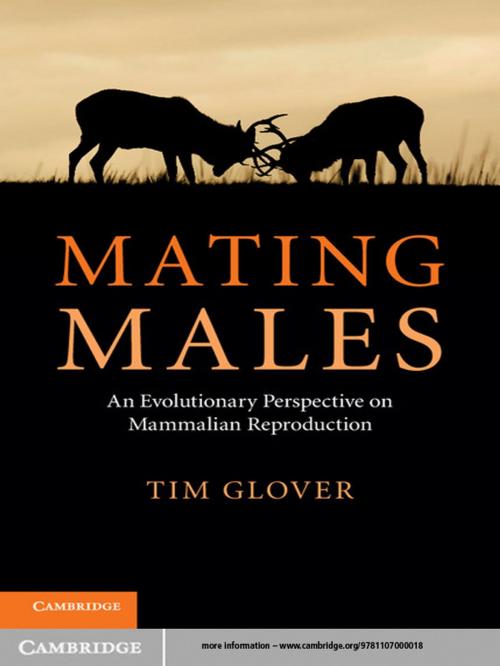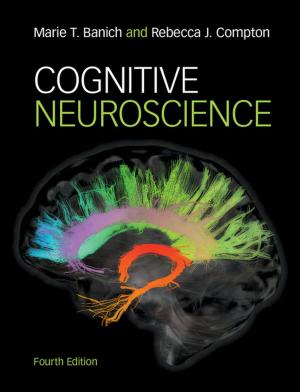Mating Males
An Evolutionary Perspective on Mammalian Reproduction
Nonfiction, Science & Nature, Science, Biological Sciences, Zoology| Author: | Tim Glover | ISBN: | 9781139234276 |
| Publisher: | Cambridge University Press | Publication: | July 12, 2012 |
| Imprint: | Cambridge University Press | Language: | English |
| Author: | Tim Glover |
| ISBN: | 9781139234276 |
| Publisher: | Cambridge University Press |
| Publication: | July 12, 2012 |
| Imprint: | Cambridge University Press |
| Language: | English |
Examining mating from the male perspective, this book provides an overview of mammalian reproduction to illustrate the important role that male desire plays in the life of mammals. Written in a conversational style that will appeal to those without specialist knowledge of the field, it begins with a broad overview of sexual reproduction in mammals, explaining the importance of mixing genes, sexual selection and the concept of mating seasons. Subsequent chapters examine some of the most important aspects in detail including mating behaviour, the structure and function of the male organs of reproduction and their physiological control and modes of copulation. A final chapter considers human reproduction, explaining how our physical and social evolution have contributed to the development of sexual behaviour that is markedly different to that of other mammals, due in particular to the absence of oestrus and seasonality in the human female.
Examining mating from the male perspective, this book provides an overview of mammalian reproduction to illustrate the important role that male desire plays in the life of mammals. Written in a conversational style that will appeal to those without specialist knowledge of the field, it begins with a broad overview of sexual reproduction in mammals, explaining the importance of mixing genes, sexual selection and the concept of mating seasons. Subsequent chapters examine some of the most important aspects in detail including mating behaviour, the structure and function of the male organs of reproduction and their physiological control and modes of copulation. A final chapter considers human reproduction, explaining how our physical and social evolution have contributed to the development of sexual behaviour that is markedly different to that of other mammals, due in particular to the absence of oestrus and seasonality in the human female.















